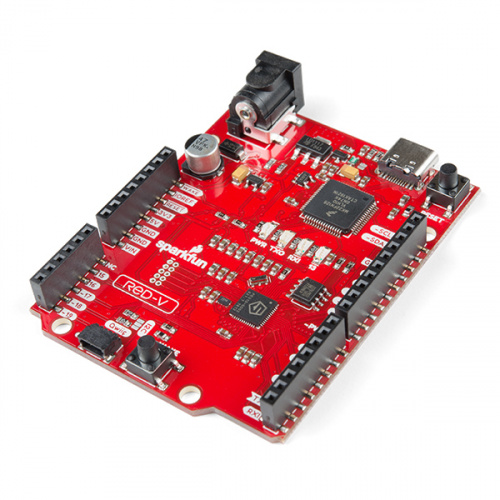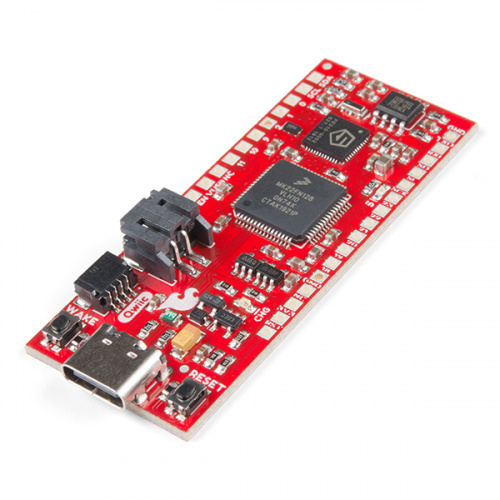In what seemed like a long time ago in a galaxy far, far away (November 2019), SparkFun launched not one, but two RISC-V boards. The SparkFun RED-V RedBoard is in a standard Arduino Uno R3 footprint, while the SparkFun RED-V Thing Plus is in a Feather-compatible footprint. They feature the Freedom E310 SoC, which brings with it the RISC-V instruction set architecture (ISA). By now, those interested in developing with these new boards have been able to get them in their hands to start playing with them, but since today is May the 4th (aka Star Wars Day) we decided to take another look and check out the boards and the resources we've created to help support them!
The SparkFun RED-V RedBoard comes in the familiar Arduino Uno R3 form factor and includes the SiFive Freedom E310 core, 32MB of QSPI flash, an NXP K22 ARM Cortex-M4 for USB connectivity and operating as a JTAG interface, and a Qwiic connector to make I2C easy. The modern USB-C connector makes it easy to program, and for more advanced users who prefer to use the power and speed of professional tools, we've also exposed the JTAG connector. Additionally, it comes programmed with a simple bootloader, making the RED-V the best way to start prototyping and developing your RISC‑V applications.
Of course, if you are looking for something a little more compact at a lower price point, we also carry the SparkFun RED-V Thing Plus. This little board is equipped with the same features as the RedBoard version but in a small, Feather-compatible footprint! With this footprint, you can take advantage of a shield option in case you don't want to use our Qwiic Connect System.
RED-V Development Guide
We've provided three guides to help get your RED-V board(s) up and running, from hookup guides for the RED-V RedBoard or RED-V Thing Plus, to a RED-V Development Guide that provides more experienced users with the tools and resources you need to progress your know-how!
A few months ago, we also explored how to utilize RISC-V's open source hardware with open source software - specifically with the resources and documentation from FreeRTOS, a Real-Time Operating System that provides kernels and libraries specifically ported for MCUs like the RED-V board. Hopefully, this opens your eyes to dozens of new possibilities that can be accomplished with this kind of open source hardware!
Since it is Star Wars Day, we would be remiss to not show off all of our (and our friends') existing Star Wars-themed projects from "a long time ago." So make sure to take a minute to check them out and see if you can find something that could help you with a new project.
Additionally, if there's something that you see that you'd like us to work on again or update, let us know! Now, if you'll excuse us, we're going to go doom scroll in the hopes of finding a new trailer or announcement for the next Star Wars film or show! May the fourth, and force, be with you!


No comments:
Post a Comment